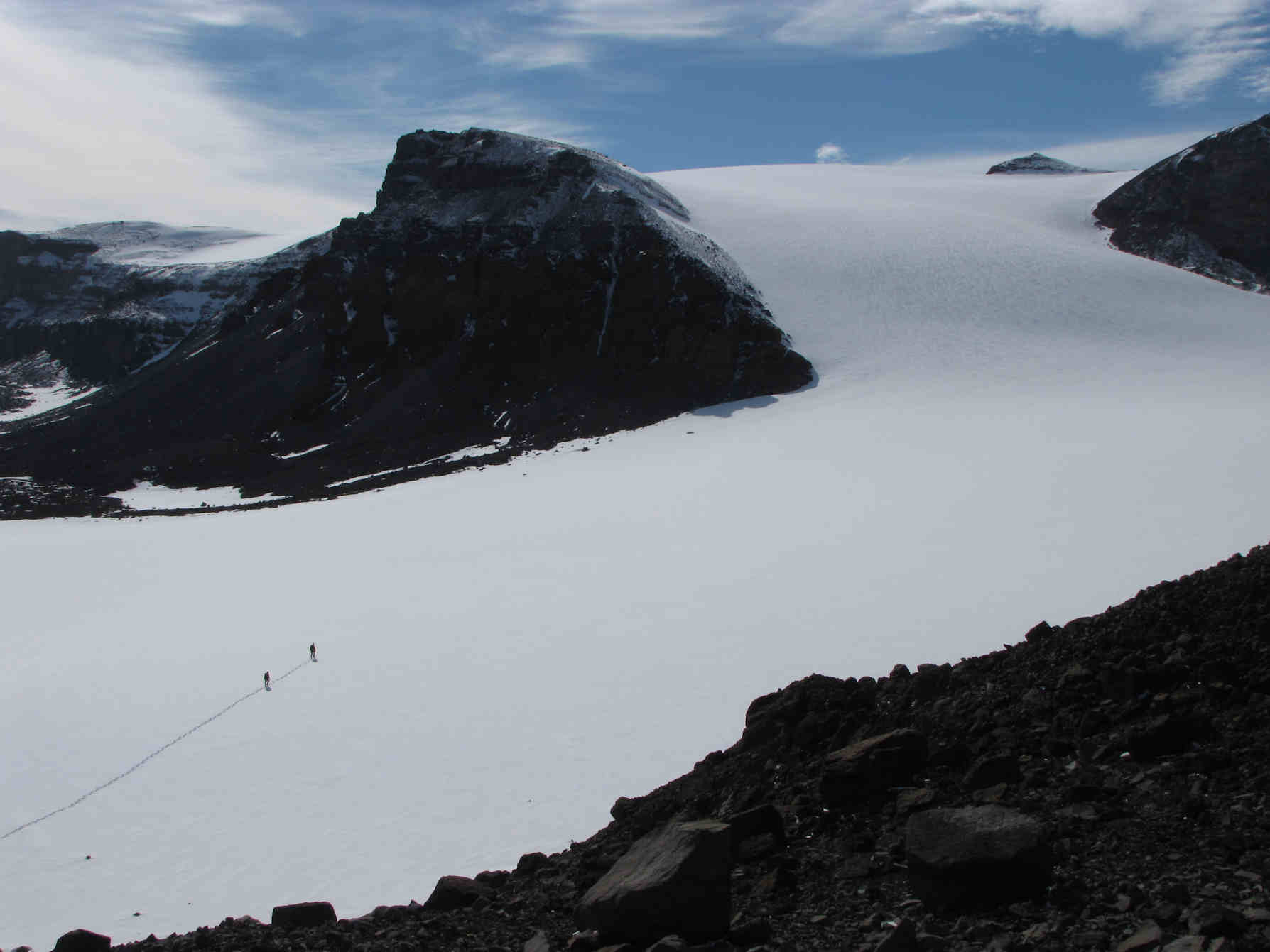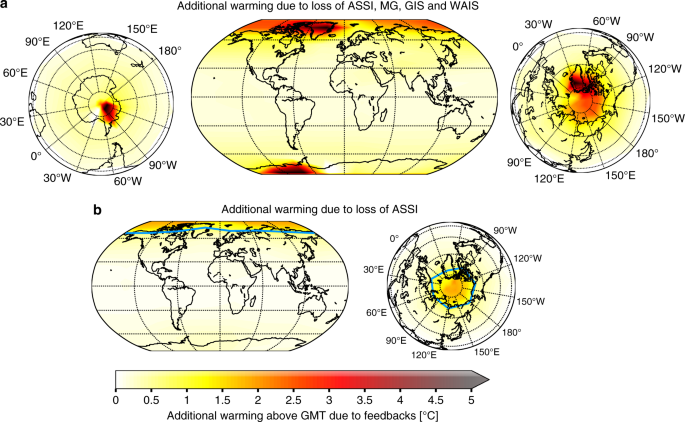Okay, as I understand it, re ice mass loss ...
Can we all agree on two things? Namely,
(1) Yes, ice mass is being lost. Each year, there is less ice. As an analogy, suppose every week, I am $100 dollars poorer. I'm losing money, steadily. Every year, I'm $5200 dollars poorer.
(2) But, compared to the total ice mass there is, this loss is tiny, trivial. It's like I started with a billion dollars, so in a hundred years, I'll go from $1,000,000,000 to $999,480,000.
Or ...
is the loss that tiny? I just picked those money-loss numbers out of the air. They're not meant to be proportional to the ice mass being lost. If I'm wrong and the loss is much more substantial than that, let's hear the correction. AND ... is the rate of loss increasing? Maybe my analogy should be that I'm losing $100 this week, $200 next week, $300 the week after ...
Unless either or both of those caveats are true, it looks like the "deniers" have won this one. But now it's the other side's turn. (And, can we leave personal insults out of this?)
I suppose there is a third option: namely, that although the ice mass being lost is tiny compared to the total, it's still important because if even a small amount is lost it will cause bad things to happen. It's like saying that my $100 a week loss is funding a gang of robbers who are going to use the money to tunnel into my bank when their robber-fund gets up to a $100 000.. So if I don't stop the loss now, I'll face a catastrophic loss in about 20 years.
Anyway, the "affirmers" now have the stage.
And ... does anyone know of any serious critical reviews of
Unsettled, by Steven E. Koonin? It's just a few bucks on Amazon. Here's the editorial blurb for it.
"Surging sea levels are inundating the coasts."
"Hurricanes and tornadoes are becoming fiercer and more frequent."
"Climate change will be an economic disaster."
You've heard all this presented as fact. But according to science, all of these statements are profoundly misleading.
When it comes to climate change, the media, politicians, and other prominent voices have declared that "the science is settled." In reality, the long game of telephone from research to reports to the popular media is corrupted by misunderstanding and misinformation. Core questions - about the way the climate is responding to our influence, and what the impacts will be - remain largely unanswered. The climate is changing, but the why and how aren't as clear as you've probably been led to believe.
Now, one of America's most distinguished scientists is clearing away the fog to explain what science really says (and doesn't say) about our changing climate. In Unsettled: What Climate Science Tells Us, What It Doesn't, and Why It Matters, Steven Koonin draws upon his decades of experience - including as a top science advisor to the Obama administration - to provide up-to-date insights and expert perspective free from political agendas.
Fascinating, clear-headed, and full of surprises, this book gives listeners the tools to both understand the climate issue and be savvier consumers of science media in general. Koonin takes listeners behind the headlines to the more nuanced science itself, showing us where it comes from and guiding us through the implications of the evidence. He dispels popular myths and unveils little-known truths: despite a dramatic rise in greenhouse gas emissions, global temperatures actually decreased from 1940 to 1970. What's more, the models we use to predict the future aren't able to accurately describe the climate of the past, suggesting they are deeply flawed.
Koonin also tackles society's response to a changing climate, using data-driven analysis to explain why many proposed "solutions" would be ineffective, and discussing how alternatives like adaptation and, if necessary, geoengineering will ensure humanity continues to prosper. Unsettled is a reality check buoyed by hope, offering the truth about climate science that you aren't getting elsewhere - what we know, what we don't, and what it all means for our future.
The very first review on Amazon -- today, anyway -- is the best critical review of Koonin's book I've found so far.









